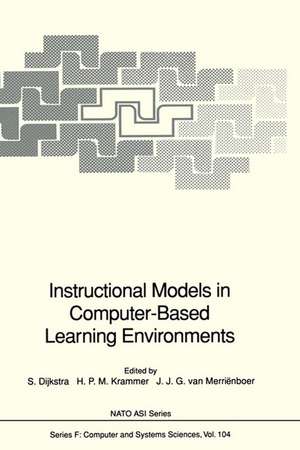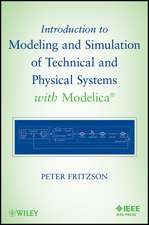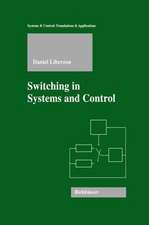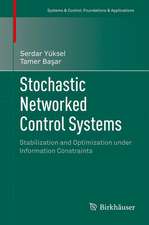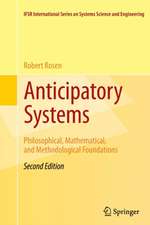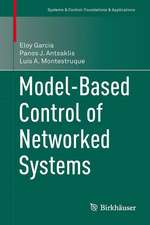Instructional Models in Computer-Based Learning Environments: NATO ASI Subseries F:, cartea 104
Editat de Sanne Dijkstra, Hein P.M. Krammer, Jeroen J. G. Van Merrienboeren Limba Engleză Hardback – 14 dec 1992
| Toate formatele și edițiile | Preț | Express |
|---|---|---|
| Paperback (1) | 1227.67 lei 6-8 săpt. | |
| Springer Berlin, Heidelberg – 4 dec 2010 | 1227.67 lei 6-8 săpt. | |
| Hardback (1) | 1234.00 lei 6-8 săpt. | |
| Springer Berlin, Heidelberg – 14 dec 1992 | 1234.00 lei 6-8 săpt. |
Din seria NATO ASI Subseries F:
- 20%
 Preț: 650.27 lei
Preț: 650.27 lei - 20%
 Preț: 668.55 lei
Preț: 668.55 lei - 20%
 Preț: 992.44 lei
Preț: 992.44 lei - 18%
 Preț: 1239.19 lei
Preț: 1239.19 lei - 20%
 Preț: 1922.81 lei
Preț: 1922.81 lei - 20%
 Preț: 654.37 lei
Preț: 654.37 lei - 20%
 Preț: 709.78 lei
Preț: 709.78 lei - 20%
 Preț: 656.03 lei
Preț: 656.03 lei - 18%
 Preț: 1854.94 lei
Preț: 1854.94 lei - 20%
 Preț: 374.97 lei
Preț: 374.97 lei - 20%
 Preț: 991.94 lei
Preț: 991.94 lei - 20%
 Preț: 671.02 lei
Preț: 671.02 lei - 20%
 Preț: 1925.96 lei
Preț: 1925.96 lei - 20%
 Preț: 994.73 lei
Preț: 994.73 lei -
 Preț: 389.49 lei
Preț: 389.49 lei - 20%
 Preț: 657.99 lei
Preț: 657.99 lei - 20%
 Preț: 655.20 lei
Preț: 655.20 lei - 18%
 Preț: 1225.31 lei
Preț: 1225.31 lei - 18%
 Preț: 952.09 lei
Preț: 952.09 lei - 20%
 Preț: 332.06 lei
Preț: 332.06 lei - 20%
 Preț: 1284.47 lei
Preț: 1284.47 lei - 20%
 Preț: 644.81 lei
Preț: 644.81 lei -
 Preț: 395.85 lei
Preț: 395.85 lei - 18%
 Preț: 1221.07 lei
Preț: 1221.07 lei - 15%
 Preț: 643.34 lei
Preț: 643.34 lei - 20%
 Preț: 645.47 lei
Preț: 645.47 lei - 20%
 Preț: 1282.98 lei
Preț: 1282.98 lei - 20%
 Preț: 656.36 lei
Preț: 656.36 lei - 20%
 Preț: 1283.31 lei
Preț: 1283.31 lei - 20%
 Preț: 1924.15 lei
Preț: 1924.15 lei - 20%
 Preț: 362.24 lei
Preț: 362.24 lei
Preț: 1234.00 lei
Preț vechi: 1504.88 lei
-18% Nou
Puncte Express: 1851
Preț estimativ în valută:
236.11€ • 246.55$ • 194.98£
236.11€ • 246.55$ • 194.98£
Carte tipărită la comandă
Livrare economică 15-29 aprilie
Preluare comenzi: 021 569.72.76
Specificații
ISBN-13: 9783540561590
ISBN-10: 3540561595
Pagini: 528
Ilustrații: X, 516 p.
Dimensiuni: 178 x 254 x 34 mm
Greutate: 0.91 kg
Ediția:1992
Editura: Springer Berlin, Heidelberg
Colecția Springer
Seria NATO ASI Subseries F:
Locul publicării:Berlin, Heidelberg, Germany
ISBN-10: 3540561595
Pagini: 528
Ilustrații: X, 516 p.
Dimensiuni: 178 x 254 x 34 mm
Greutate: 0.91 kg
Ediția:1992
Editura: Springer Berlin, Heidelberg
Colecția Springer
Seria NATO ASI Subseries F:
Locul publicării:Berlin, Heidelberg, Germany
Public țintă
ResearchCuprins
Instructional models in computer-based learning environments.- Instructional models in computer-based learning environments.- Content and delivery planning.- An introduction to instructional transaction theory.- The useful representation of instructional objectives: A task analysis of task analysis.- The significance of prescriptive decision theory for instructional design expert systems.- Transforming knowledge into learnable content.- Modeling requirements for intelligent training systems.- G’s dynamic learner model.- The description of subject matter and instructional methods for computer-based learning.- The study of problem characteristics in programming tutors.- PEPE: A computational framework for a content planner.- A generic task model for instruction.- Instructional strategies, methods, and techniques.- An instructional strategy to teach a cognitive strategy via intelligent computer-assisted instruction: A design.- A descriptive model of instructional processes in interactive learning environments for elementary computer programming.- Two models of classroom learning using a communal database.- Adaptive tutoring of arithmetic skills.- Cognitive development based on process-learning environments.- Instructional strategies for teaching database query languages.- Extensions of intelligent tutoring paradigms to support collaborative learning.- Contextual module analysis in instructional design.- IByD: Computer support for developing unit plans: A first study.- (S)GML-based hypermedia: Generic resources for exploratory learning.- Hypertext as a strategy for teaching and assessing knowledge representation.- The delicate balance between learner and system control.- Cognitive flexibility theory and its implications for designing CBI.- Exploratory learning fromcomputer-based systems.- A cooperative system for the interactive debugging of novice programming errors.- Programming languages and dynamic instructional tools: Addressing students’ knowledge base.- The instructional design of CAI for problem solving in mathematics.- Dynamic interfaces for computer-based simulations in pharmacology.- Implementing learner control in an automated instructional system.
